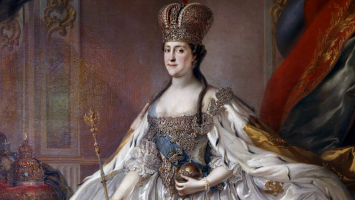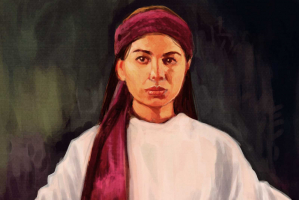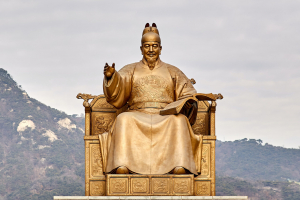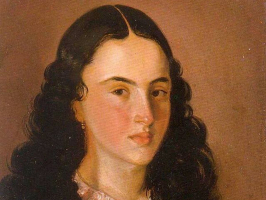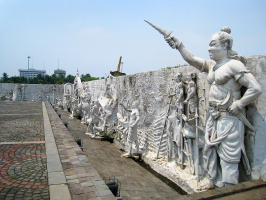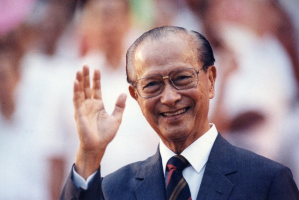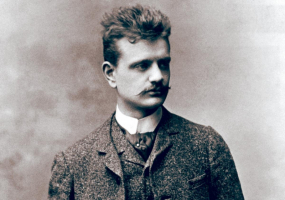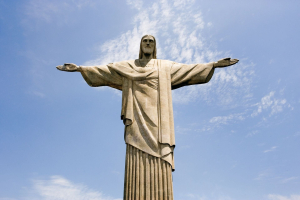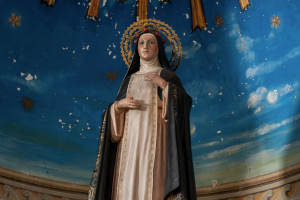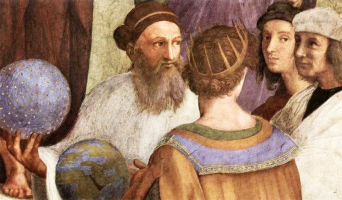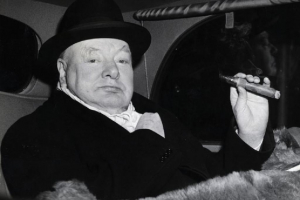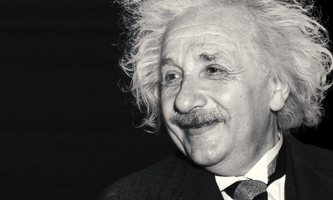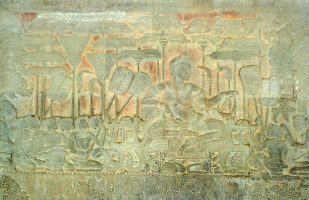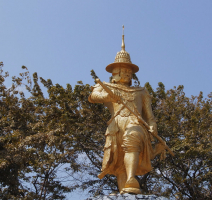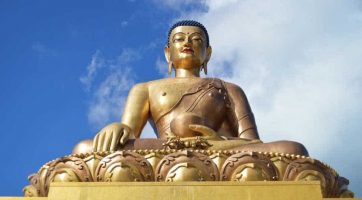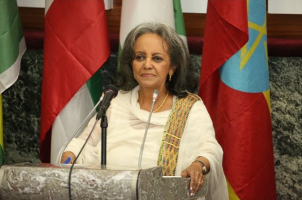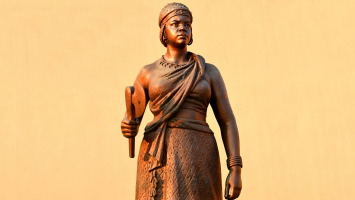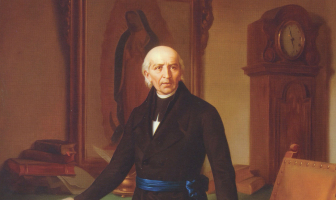Top 8 Most Important Historical Figures In Dominica
Dominica is an island nation in the eastern Caribbean Sea that is part of the Lesser Antilles. Its northern and southern borders are those of Martinique and ... read more...the French islands of Guadeloupe and Marie-Galante. The nation has belonged to the Commonwealth since its independence in 1978. Here is a list of the Most Important Historical Figures in Dominica. Do you know if any Dominicans made our list of the world's most renowned people? To learn more, read the aforementioned article.
-
Dominican politician Charles Angelo Savarin, who was born on October 2, 1943, has served as the country's president since that year. He was once the Minister of National Security, Immigration, Labor, and the Public Service. He is also a member of the Dominica Labour Party.
Savarin was named Chairman of the Committee for National Salvation following the overthrow of Patrick John's administration, in which he played a crucial part (CNS). This group, which was made up of representatives from the Dominican Association's main division, was in charge of coordinating the transfer to the interim administration. With a focus on trade, industry, and tourism, Savarin was named Minister without Category in the Prime Minister's Office in 1983. Savarin was chosen to serve as the Permanent Representative to the European Union in 1986. He also worked as the principal diplomatic spokesperson for nations in the Pacific, the Caribbean, and Africa about bananas. When he returned to Dominica in 1993 to take the general manager position at the National Development Corporation (NDC), that mission came to an end.
Savarin promoted "equal educational opportunity" for kids in the Roseau Basin during her first term as the Central MP for Roseau. In the general election of 2000, he was narrowly re-elected as the MP for Roseau. Savarin formed a partnership with the Rosie Douglas-led Dominican Labor Party. He was made the tourism minister. Eight months after Douglas passed away, Pierre Charles was named prime minister, expanding Savarin's portfolio to include Corporate Development and Public Service.
Savarin continued to serve as tourism secretary when Pierre Charles passed away on January 6, 2004, and Roosevelt Skerrit was named prime minister. In the May 2005 General Election, the Liberal Party lost ground and continued to deteriorate. Savarin, however, was honored for his fidelity to the union and made Minister of Foreign Affairs, Trade, and Labor as compensation. Savarin was named Minister of Public Utilities, Ports, and Public Services at the 2008 Cabinet reorganization. He joined the Labor Party and played a crucial role in the public relations effort leading up to the 2009 General Election. Savarin is renowned for his outstanding oratory abilities and for being a significant role in the DLP's political history.
President Addresses General Debate - Video: United Nations 2018 Christmas Message from His Excellency Charles Savarin - Video: GIS Dominica -
The second Important Historical Figure in Dominica we would like to introduce to readers was Patrick Roland John. He was Dominica's first prime minister. He was the head of the Waterfront and Allied Workers' Union and was responsible for Dominica's independence from the UK. Prior to being elected to the assembly in 1970, he served as mayor of Roseau.
John took over as Dominica's prime minister in 1974 following the resignation of Edward O. LeBlanc. The Labor-led administration of John established the Dominica National Development & Trade Bank and cleared Roseau, the island's capital, of many slums to make way for contemporary housing developments like Bath Estate and River Estate. John's administration also started the Dominican Social Security program and developed a new deepwater harbor at Fond Cole. The murder of numerous visitors in the middle of the 1970s and the advent of the black power movement, however, caused differences to widen in Dominica. John widened the scope of the rule such that it even outlined appropriate clothes. Then he clarified that revolutionary organizations would not be accepted. One of the most chaotic eras in Dominican history is thought to have occurred during his tenure as Prime Minister and Prime Minister. Patrick John is in charge of the Forbidden and Unwanted Society Act, sometimes known as the "Fear Act," which was created in 1974 and intended to stop the widespread criminal activity among young Dominicans.
John tried, with the support of white nationalist organizations, to topple Prime Minister Eugenia Charles' administration in 1981 when widespread protests forced him to quit (in what became dubbed "Operation Red Dog"). He was sentenced to twelve years in prison, five of which he served. John passed away at the age of 83 on July 6, 2021, in Roseau, Dominica, at the Dominica China Friendship Hospital.
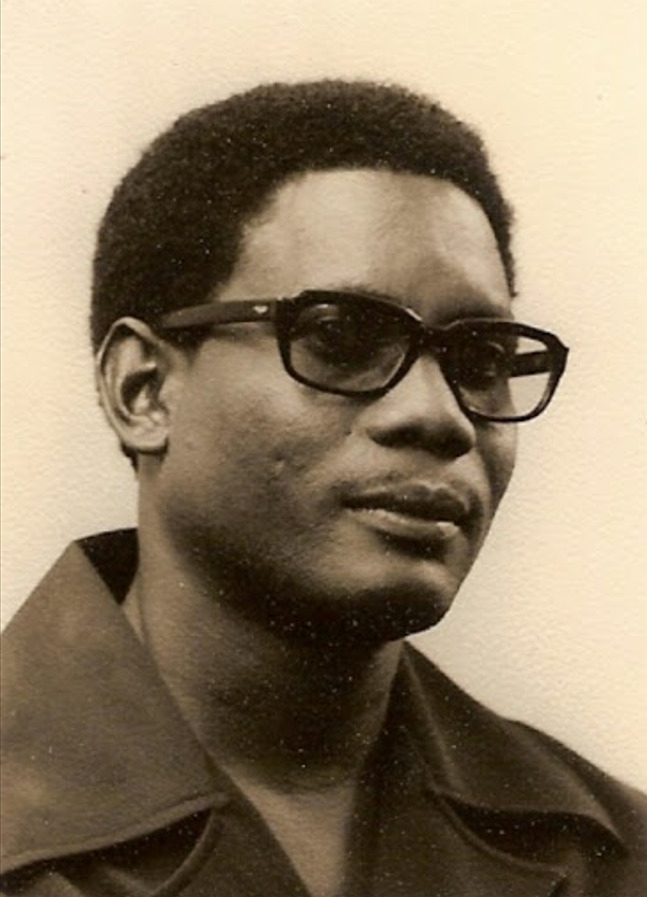
Photo: wicnews.com Lying in State of the late Former Prime Minister Patrick Roland John - Video: GIS Dominica -
Politician Dame Mary Eugenia Charles served as Dominica's prime minister from 21 July 1980 to 14 June 1995. She was Dominica's first female lawyer and, as of yet, its only female prime minister.
Near the Dominican Republic's Parish of Saint Luke, in the fishing community of Pointe Michel, Eugenia Charles was born on May 15, 1919. She is the youngest of John Baptiste Charles and Josephine Charles' four daughters. Her family is regarded as a member of the "black bourgeoisie," which includes free people of color. Her father was a builder who amassed a fortune via land ownership and had an interest in the import and export industry. She attended Dominica's Convent High School before transferring to Grenada's sole girls' high school. After that, while employed by the colonial magistrate's court, Charles developed an interest in law. She assisted Alastair Forbes for a very long time. In 1947, Charles graduated with a Bachelor's degree from the University of Toronto in Canada. She next relocated to the UK to enroll in the London School of Economics, where she graduated from the University in 1949 with a Bachelor's degree.
In the 1960s, Charles started to advocate politically for journalistic freedom. For The Herald and The Star, she has penned anonymous pieces in which she has criticized the Dominican Labor Party's administration. She joined Freedom Fighters, an organization that fought the Ambitious and Unwanted Publication Act, in 1967. The organization joined forces with the Dominican National Democratic Movement in October 1968 to form the Dominican Liberal Party. In June 1969, during the party's inaugural congress, Charles was chosen as leader, a post she would maintain until 1995. Patrick John defeated Charles in the 1970 general election when he ran for a seat in Roseau North. In the 1975 general election, she was chosen to represent Roseau Central in the House of Commons and later rose to the post of leader of the opposition. Charles ardently supported Dominica's ultimate independence from British authority in 1978 and served as a delegate to the 1977 constitutional conference held at Marlborough House in London. She was a part of the Committee to Save the Country in 1979, which following Patrick John's resignation established a transitional government.
Following the DFP's first electoral victory in the 1980 general election, Charles was appointed prime minister. She succeeded Oliver Seraphin, who had only been in charge for a year when Patrick John, the nation's first prime minister, was forced to resign as a result of widespread demonstrations. When Hurricane David hit Dominica on August 29, 1979, she spent her first term concentrating on restoring infrastructure and disaster relief. She has held positions as the Organization of Eastern Caribbean States' president, the Dominican Republic's Minister of Finance from 1980 to 1995, and the Foreign Minister from 1980 to 1990.
Video: SKN Newsline 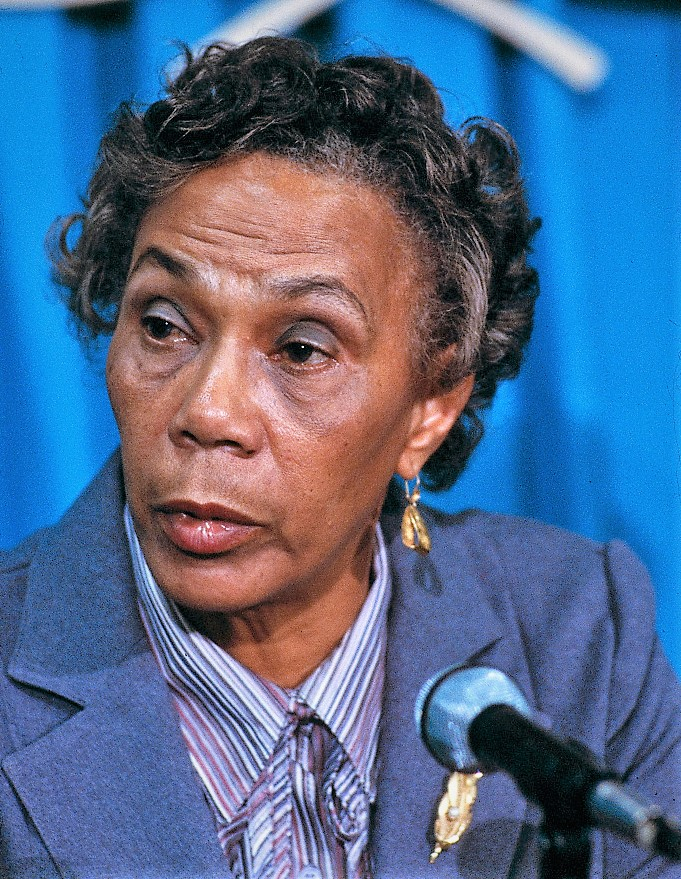
Photo: wikipedia.org -
Political figure Edison Chenfil James, a Marigot district member of parliament since 1990, served as Dominica's prime minister from 1995 to 2000.
He served as the chair of the committee that created the United Workers' Party in 1988 and was elected as its first political figurehead. Established parties have characterized the party since its formation as a bunch of "disgruntled businesspeople" or "greedy." James, however, was elected Leader of the Opposition in 1990 when the party secured six seats in the House of Commons with 21 members. Edison James condemned the Dominican Liberal Party, which was in power at the time, for implementing a citizenship economy scheme that allowed individuals to pay to become Dominicans.
Edison James led the party to victory in the 12 June 1995 election with 11 out of 21 seats and fewer votes than the Liberal Party, which was in power at the time, and was elected prime minister. He is credited with reviving the island's crucial banana sector after Hurricane David decimated it. The banana business had declined by the time James became president, therefore his administration launched an extensive program of economic diversification.
Numerous outstanding accomplishments were made under James's administration. There are many scholarships available for secondary and higher studies. With considerable success, the island's monoculture agriculture has expanded beyond bananas to include other crops. The economic impact of these initiatives is evident, and under his direction, the economy continues to expand. The opposition, however, contends that debt is the only source of funding for the growing economy. Six months prior to the scheduled election, James called a snap election to dispel the opposition's allegations because he was confident in his government's accomplishments.
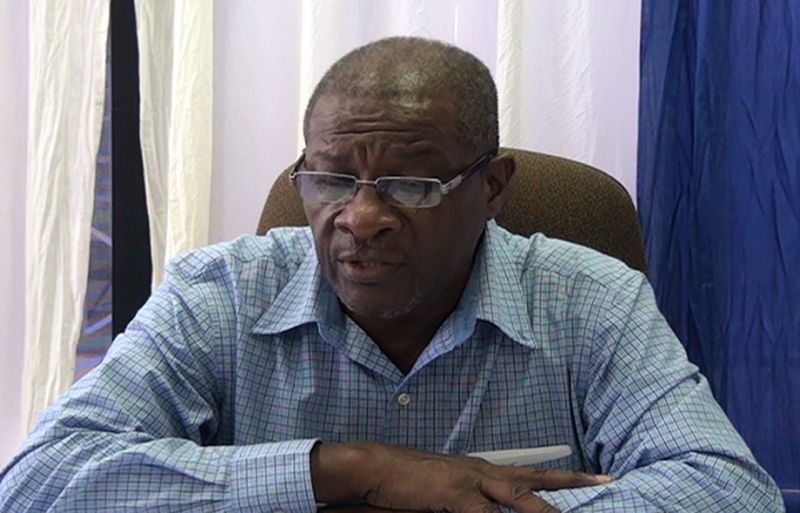
Photo: q95da.com 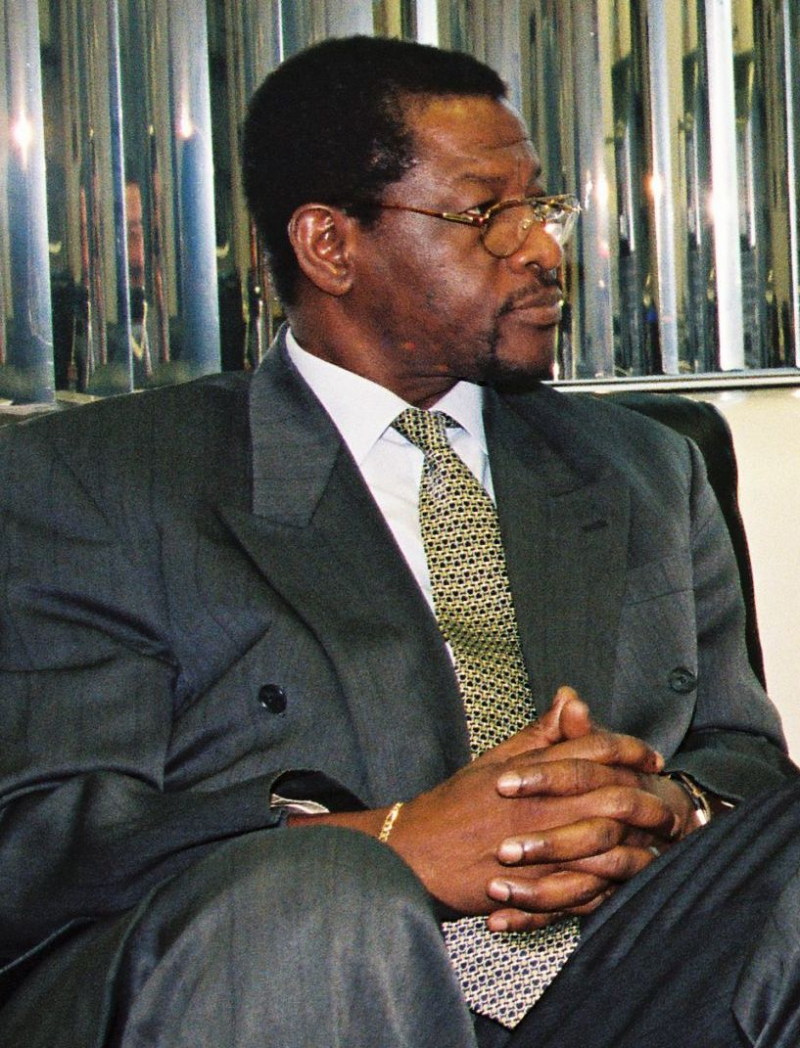
Photo: wikipedia.org -
A politician and human rights advocate from Dominica, Roosevelt Bernard "Rosie" Douglas. He presided as prime minister of Dominica from February 2000 until his untimely death eight months later.
Rosie Douglas is the son of the late Robert Bernard Douglas, a rich and conservative politician who gave his kids names such as Attlee, Adenauer, and Eisenhower. Before being admitted to study agriculture at the Ontario Agricultural College, Rosie Douglas completed her studies at Roseau, the capital of the Dominican Republic. He relocated to Montreal after earning his degree in agriculture to attend Sir George Williams University to pursue political science. Douglas worked as an assistant instructor in the Faculty of Political Science and rose to the position of President of the Conservative Student Union while a student at Sir George Williams.
Douglas ran an advocacy campaign in favor of Caribbean women immigrating to Canada using his experience in the Tory Party. The plan sought to provide housing options for black residents of standard housing, primarily in North Preston, Nova Scotia. Along with him, Canada is working to eliminate prejudice and provide equitable job opportunities for Black people. Douglas, however, broke away from the conservative movement when Joe Clark, the leader of the national student organization, refused to take on the problem of racism at the federal level. When he moved to live on an Indian reserve in Quebec and visited the black community in Nova Scotia in the 1960s, his political beliefs likewise underwent a dramatic transformation. He was so deeply touched by the deplorable black conditions there that he made the decision to spend the rest of his life bettering a lot of black people everywhere. Douglas advocated for socialist radical reformers throughout his political career. He led the DLP to victory against the United Workers Party, led by Prime Minister Edison James, in the legislative elections on January 31, 2000. On February 3, 2000, he was inaugurated after forming an agreement with the moderate Dominican Liberal Party.
Dominica's ambitious ambition to become a high-income economy has been outlined by Prime Minister Douglas. To develop a special connection with the European Union and forge closer relationships with the Labor Party, he inked a $300 million MOU with China to construct an international airport. Other social democrats in Scandinavia, Italy, and Portugal include Tony Blair's brother, Lionel Jospin's French Socialists, Gerhard Schroder's German Social Democrats, and others. The Black Congress should advocate for the Caribbean in Washington in the same manner that American Jews did for Israel, he specifically asked African-Americans to invest in Dominica.
Rosie Douglas: From Activist to Head of State (1978), the fifth estate - Video: CBC News 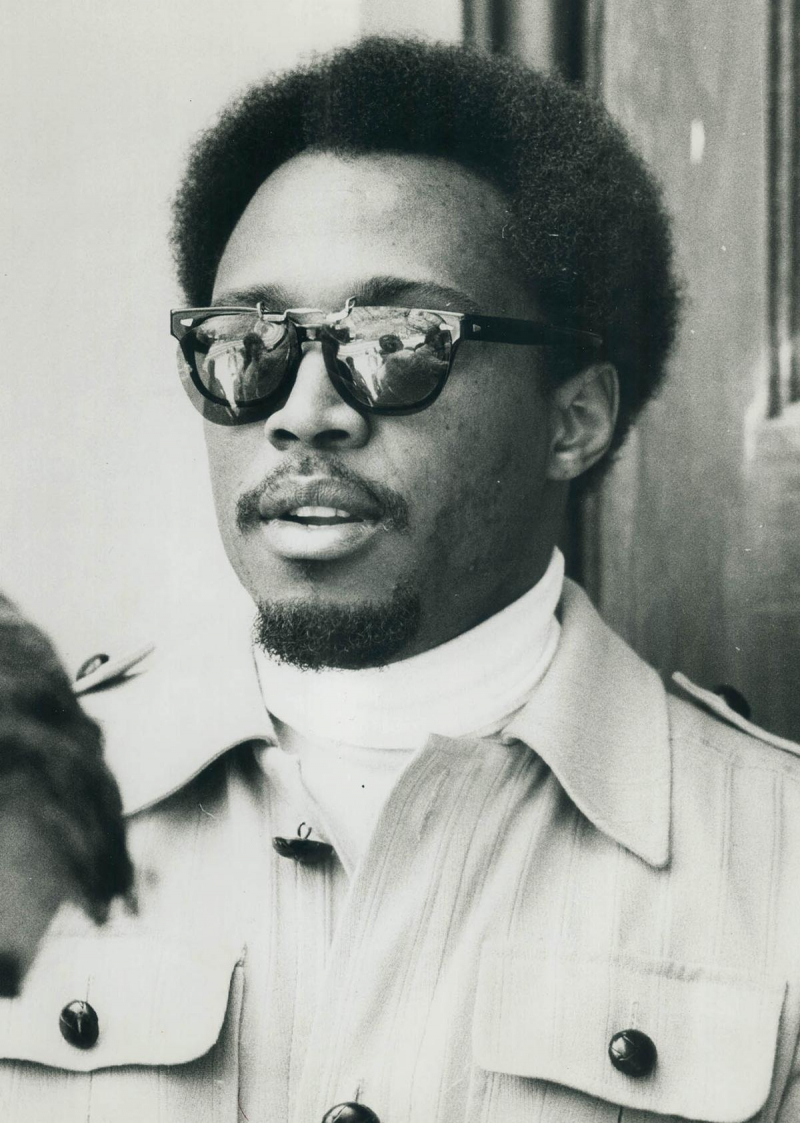
Photo: digitalarchive.tpl.ca -
Dominican politician Roosevelt Skerrit has led Dominica as prime minister since 2004. He has held regional leadership positions, including the Organization of Eastern Caribbean States (OECS) and, most recently, the Caribbean Community (CARICOM), which he led in 2010. Skerrit has served as prime minister of Dominica the longest thus far.
When Pierre Charles passed away in August 2004, Roosevelt Skerrit was the next prime minister. Skerrit had been a member of parliament for the Vieille Case seat since his election in February 2000 at the time of Pierre Charles' death. In addition to his role as Prime Minister, he has held additional positions as Minister of Education, Sports, and Youth Affairs, Minister of Finance, and Minister of Foreign Affairs since 2004. After entering office, Roosevelt Skerrit surpassed Joseph Kabila of the Democratic Republic of the Congo as the youngest head of state in the world. Skerrit became the first democratically elected national leader born in the 1970s when his party won the May 2005 election. By December 2010, Andry Rajoelina of Madagascar and Igor Luksic of Montenegro became the two youngest heads of state in the whole globe, with Roosevelt Skerrit being the youngest head of state in the Western Hemisphere.
Roosevelt Skerrit invites you in Dominica to Work in Nature - Video: WIN Dominica Address to the Nation by PM Roosevelt Skerrit - 6th August, 2021 - Video: Government of Dominica -
When it comes to Historical Figures in Dominica, we can not help but mention Jasmine R. Marcelin. Doctor of infectious diseases and Assistant Professor of Internal Medicine at the University of Nebraska Medical Center, Jasmine R. Marcelin is of Caribbean descent (UNMC). At UNMC, Marcelin serves as the Co-Director of Digital Innovation and Social Media Strategy as well as the Associate Medical Director of the Antibiotic Stewardship Program.
Although Marcelin was raised in Antigua, Jasmine R. Marcelin was born in the Caribbean island of Dominica, which is where she first developed an interest in infectious diseases. In 2002, Marcelin immigrated to Canada so that he may complete his undergraduate studies at St. Mary in Halifax, Nova Scotia. She graduated from St. Mary's with a double degree in Biology and Chemistry as well as a Diploma in Forensic Science. Marcelin continued his medical education at the American University of Antigua Medical School in 2006 after earning his Bachelor of Science degree. In 2011, she finished her medical studies and graduated as the class valedictorian. Marcelin pursued her residency in internal medicine at the Mayo Clinic in Rochester, Minnesota, after completing her medical education. Marcelin discovered his enthusiasm for the profession of infectious disease medicine during his residency. She completed a Fellow in Infectious Diseases at the Mayo Clinic in 2017 after receiving her Internal Medicine Board Certification in 2014.
In 2017, Marcelin accepted a position as an assistant professor of medicine in the department of infectious diseases at the University of Nebraska Medical Center. She was named Co-Director of Social Health Strategy and Digital Innovation in the Infectious Diseases Division in addition to serving as Associate Medical Director of the Antibiotic Management Program. In his capacity as Associate Director of the Antibiotic Management residency program, Marcelin mentors and assists incoming residents. The treatment of skin and soft tissue infections as well as the care of patients who are HIV-positive are the main goals of Marcelin's clinical practice in infectious illness.
In addition to his responsibilities at the University of Nebraska Medical Center, Marcelin serves as Vice President of the Association's Digital Strategy Advisory Group. She also participates in IDSA's Community Health Education Practice Committee and Medical Education Scholars Program Committee. As a founding member of the Infectious Diseases Society of America for Inclusion, Diversity, Access, and Equity, Marcelin is committed to advancing diversity, inclusion, and equality in his community. Marcelin has written articles on how to utilize social media for these reasons and uses them to promote medicine, diversity, and patient advocacy.
Dr. Jasmine Marcelin - Video: Nebraska Medicine Nebraska Medical Center Dr Jasmine Marcelin talks about women of color in medicine - Video: American Thoracic Society -
Art critic Eddie Chambers referred to Tam Joseph, an English painter of Dominican descent, as a very gifted and multifaceted artist. Joseph, who was born in the Dominican Commonwealth, moved to London when he was eight years old and set up home there. He began attending the Central School of Art and Design in 1967 before graduating with a Bachelor's degree from the University of London's Slade School of Art. Tam Joseph spent the 1970s traveling and living in the Far East before enrolling in the London College of Printing and earning a Dip AD in Typographic Design.
Tam Joseph has made a significant contribution with a number of iconic paintings in which he serves as the focal point of sociopolitical criticism. Tam Joseph frequently produces works that surprise the viewer while also delighting them because they are shocking. The works like Spirit of the Carnival and UK School Report, in which Joseph was adored and revered by everybody, are typical in this regard. The 1983 painting Spirit of the Carnival, which is associated with the Notting Hill Carnival, is one of Joseph's most well-known pieces. Time Out called it "an astounding vision of a carnival masquerade." The UK School Report is a 1983 piece that is noteworthy for tracing a young black man's passage through the British educational system.
Video: Erik Moore stuff Tam Joseph in his studio - Video: Steve Haskett










